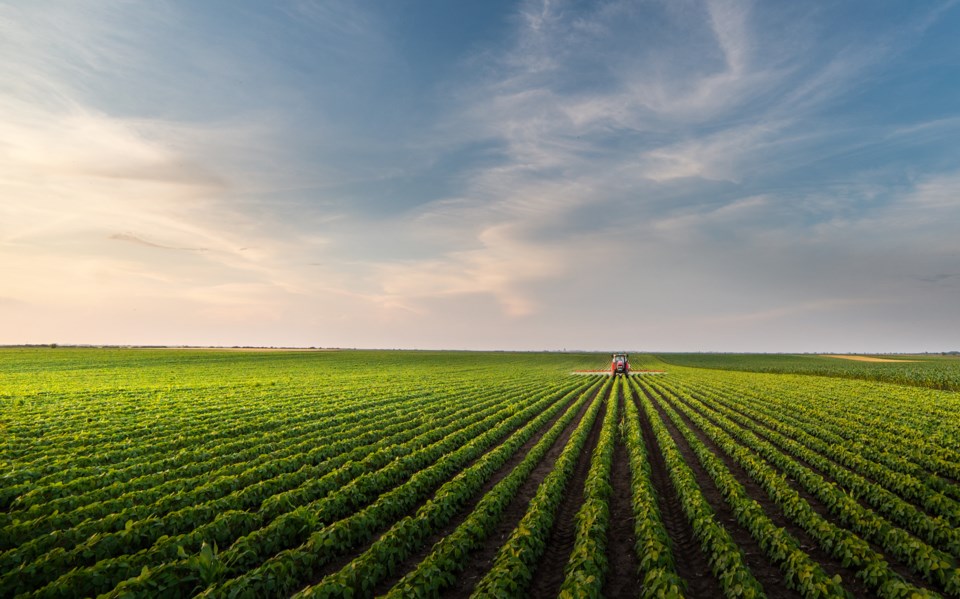For Steve Kell, and farmers across Simcoe County, the Russian invasion of Ukraine, wildfires in the west or droughts in Africa aren’t just far-off tragedies — they have a direct impact on their livelihoods.
In February 2022, Kell, a crop farmer with operations in Innisfil, said the price of grain skyrocketed as a potential invasion in Ukraine became a certainty, almost doubling.
“As the anxiety has sort of faded from that, prices have fallen, the world's (agriculture markets) are not as worried about it as they were when it first started,” he said. “And I think consumers have seen that.”
So have the majority of the county’s 1,400 registered farms that, in total, employ more than 3,300 people.
“Price fluctuations are part of the game in agriculture,” Kell said. “Dips and spikes of 20 to 25 per cent aren’t uncommon. If you like certainty and predictability, agriculture is not your thing,” Kell said.
While the fluctuating prices have always been present, new technology has evolved to allow industry insiders such as Kell to monitor future and expected prices based on thousands of factors.
“News of, you know, a drought in Australia or war in Eastern Europe or flooding in Brazil all have the capacity to impact the prices that farmers in Simcoe County would receive.”
The grain industry uses a futures market to hedge their bets — Kell watches the Chicago Mercantile Exchange for example. Then, they can sell crops based on future prices, meaning farmers often hold crops in storage before selling or can even cash in on the value of yet-to-be-grown crops.
“Information is instant,” Kell said. “So if the futures price starts to move, because you know, about missiles in Ukraine or something, everybody knows, within minutes that it happened. Back 30 years ago, when I started, guys would phone you on their landline at lunch."
This year, Kell said prices have returned to normal with the summer’s harvest looking reassuring.
“We've had record high wheat yields, and soybean yields look good. And so I think most guys are pretty happy with their production for the year,” he said.
While other areas of agriculture — such as dairy — don’t fluctuate in price as much, farming experts like Dave Ritchie, president of the Simcoe County Federation of Agriculture, point to Canada’s strong market controls as a way prices are kept somewhat consistent even as prices around the globe spike.
“We’re fortunate in Canada," Ritchie said. “We’ve got a good system that’s well managed and safe. Canadians as a whole enjoy probably the most reliable and safest food delivery system in the world, whether it starts from the producer at the farm, right up through to the production side of things and at the grocery store.”
While Simcoe County and the Barrie area become more urbanized, Ritchie and Kell said the agricultural sector – even locally – offers a crop of young job-seekers ample choice for lucrative careers as the industry evolves.
“There's enormous opportunities for young people in agriculture, because there are so few young people who are entering the business,” Kell said. “There's been fewer and fewer and fewer family farms for years. And so there's fewer and fewer farm children who are looking to take over the family business.”
Kell said that the expanded world of agricultural technology and services has opened up new doors for young people.
“It used to be the only way to become a farmer was to be a child of a farmer, but now, I think there are enough opportunities in the agricultural economy that there's lots of room for people who don't essentially inherit a farm.”
